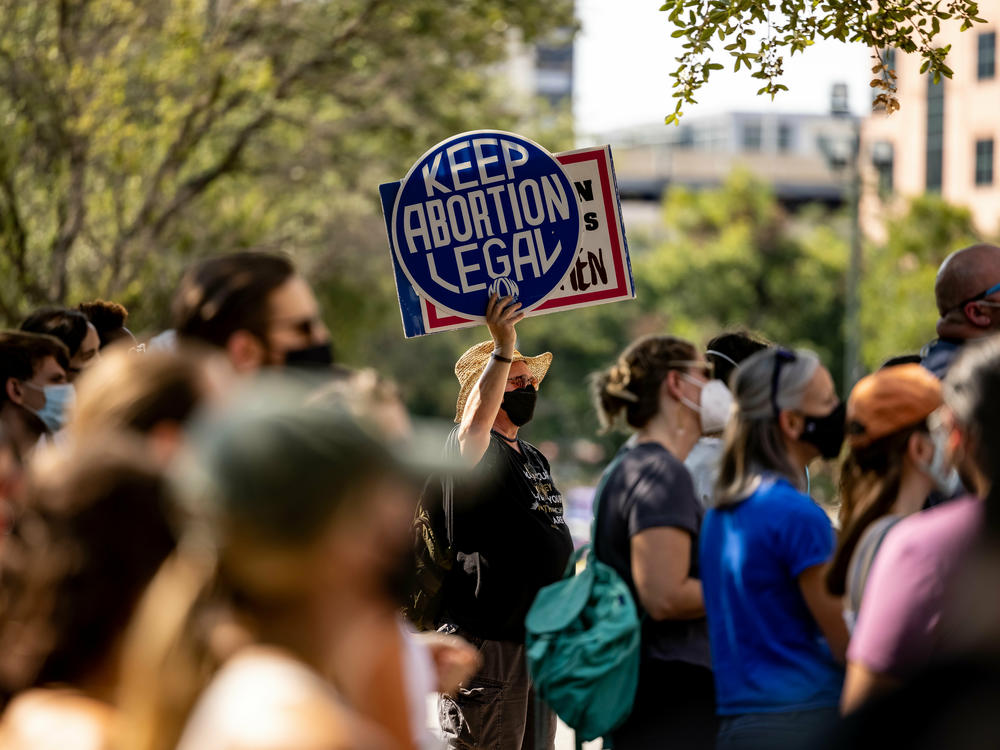Section Branding
Header Content
Texas man sues ex-wife's friends for allegedly helping her get abortion pills
Primary Content
A Texas man has filed a wrongful death lawsuit against three friends of his ex-wife for allegedly helping her obtain pills used to induce an abortion last year.
The lawsuit seeks more than $1 million from each of the three defendants and an injunction prohibiting them from "distributing abortion pills." The woman who obtained the abortion is not a defendant in the suit.
It's believed to be the first such case since the Dobbs v Jackson Women's Health Organization decision last June overturned decades of abortion-rights precedent, allowing laws criminalizing abortion to take effect around the country.
The plaintiff, Marcus A. Silva of Galveston County, Texas, alleges that his then-wife discovered she was pregnant in July 2022 and tried to conceal both the pregnancy and the self-managed abortion from him. According to the lawsuit filed in state court, the couple divorced in February of this year.
The lawsuit relies heavily on information contained in text messages exchanged between Silva's ex-wife and her friends, the three defendants, last year. In messages included as exhibits in the filing, the women discuss various ways of obtaining abortion pills and the logistics involved in self-managing an abortion at home.
In one exchange, one of the friends tells the pregnant woman, "You can do it at home. We can take the day off and do it at my place if you want."
In another message, the woman expresses gratitude to her friends, telling one of them, "your help means the world to me" and adding that she felt "so lucky to have y'all."
Silva's lead attorney is Jonathan Mitchell, who is known for designing the legal strategy behind Senate Bill 8, the unique Texas abortion ban that took effect in 2021 after the U.S. Supreme Court declined to block it. That law, implemented months before the Dobbs decision, got around federal precedent by employing what opponents describe as a "bounty hunter" system. It allows private citizens to sue anyone believed to be involved in helping a patient obtain an illegal abortion in Texas for tens of thousands of dollars.
But this case takes a different and arguably more aggressive strategy by instead referring to the state's wrongful death, murder and anti-abortion statutes. The suit describes assisting an abortion in Texas as an "act of murder" and notes the abortion took place after the Dobbs ruling, arguing that it was not protected by any federal precedent.
It repeatedly describes the abortion as the "murder" of Silva's "unborn child" with "illegally obtained pills." The suit also claims the friends conspired with the pregnant woman to secretly terminate her pregnancy.
The suit specifically notes that Silva's ex-wife is "exempt from civil and criminal liability and Marcus is not pursuing any claims against her." In the aftermath of Dobbs, the question of whether people who have abortions should be targeted for prosecution has been an ongoing subject of speculation and sometimes debate among abortion-rights opponents, although several major anti-abortion groups have taken a public stance opposing the prosecution of patients themselves.
In a statement, former Texas state Sen. Wendy Davis, a senior adviser at Planned Parenthood Texas Votes, said abortion-rights activists are "outraged, but we are not surprised" and accused anti-abortion groups of using the courts "as an instrument of fear and intimidation."
The suit comes as a federal judge in Texas is considering a separate lawsuit filed by anti-abortion rights groups seeking to force the Food and Drug Administration to pull mifepristone, a drug used in most medication abortions in the U.S., off the market. A competing lawsuit filed by a group of Democratic state attorneys general seeks to preserve access by prohibiting the FDA from removing the drug.
Medication abortion access increasingly has become the focus of litigation and legislation surrounding the fight over abortion rights in the United States. That's in large part because of its increasing use by patients seeking abortions. More than half of abortions in the U.S. now take place using pills, and pills are often more accessible than surgical procedures for people living in states with restrictive abortion laws.
Copyright 2023 NPR. To see more, visit https://www.npr.org.

